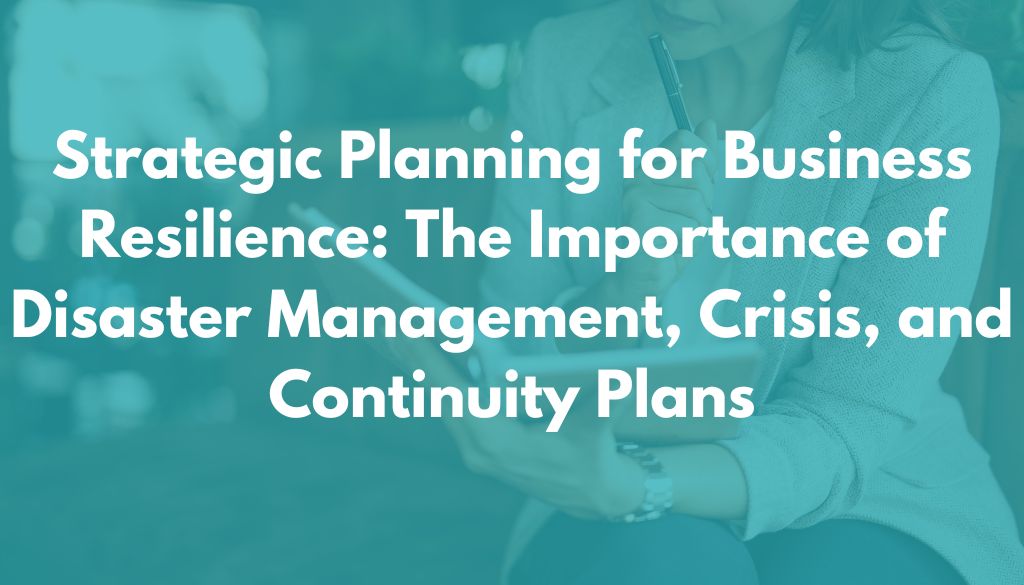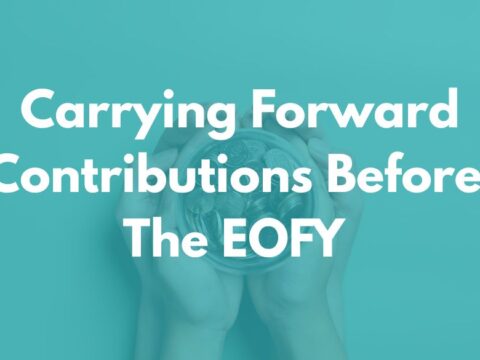Strategic Planning for Business Resilience: The Importance of Disaster Management, Crisis, and Continuity Plans
Strategic planning for businesses ensures resilience and continuity in adversity.
While businesses often focus on growth and expansion, preparing for potential disruptions and emergencies that could threaten operations is equally essential.
This is where disaster management, crisis, and continuity plans come into play.
Disaster Management Plans
Disasters can strike without warning, ranging from natural calamities like floods, earthquakes, and hurricanes to human-made incidents such as cyberattacks, data breaches, or supply chain disruptions.
Disaster management plans outline strategies and protocols for responding to and recovering from such events swiftly and effectively. These plans typically include measures for ensuring employee safety, protecting critical assets and infrastructure, and minimising downtime.
By having a comprehensive disaster management plan, businesses can mitigate the impact of disasters and expedite the recovery process.
Crisis Management Plans
While disasters are often external events beyond a business’s control, crises can arise from internal factors such as leadership failures, product recalls, or reputational issues.
Crisis management plans are designed to address these unexpected challenges and mitigate their impact on the organisation’s reputation, brand equity, and bottom line. These plans outline communication strategies, escalation procedures, and decision-making frameworks for managing crises promptly and transparently. By proactively addressing crises and demonstrating resilience, businesses can preserve stakeholder trust and emerge stronger from adversity.
Business Continuity Plans
Business continuity plans focus on maintaining essential functions and operations during and after disruptive events to ensure minimal disruption to business operations.
These plans identify critical processes, resources, dependencies, and alternative strategies for sustaining operations during a crisis or disaster.
Business continuity plans encompass remote work arrangements, data backup and recovery procedures, and alternative supply chain routes.
By prioritising continuity and preparedness, businesses can reduce downtime, protect revenue streams, and uphold their commitments to customers and stakeholders.
Benefits of Comprehensive Planning
- Risk Mitigation: By anticipating potential threats and developing proactive strategies, businesses can mitigate the impact of disruptions and minimise associated risks.
- Resilience and Adaptability: Comprehensive planning fosters organisational resilience, enabling businesses to adapt and respond effectively to changing circumstances and emerging challenges.
- Stakeholder Confidence: Demonstrating preparedness and responsiveness instils confidence in customers, employees, investors, and other stakeholders, strengthening relationships and fostering loyalty.
- Regulatory Compliance: Many industries have regulatory requirements mandating development and implementation of disaster management, crisis, and continuity plans. Compliance with these standards is essential for avoiding penalties and legal liabilities.
- Competitive Advantage: Businesses prioritising resilience and preparedness gain a competitive edge by differentiating themselves as reliable partners and service providers.
Disaster management, crisis, and continuity plans are integral components of strategic planning for businesses seeking to enhance resilience and ensure continuity in the face of adversity.
By investing in comprehensive planning, businesses can mitigate risks, maintain essential operations, and safeguard their reputation and bottom line.
In today’s volatile and uncertain business environment, proactive preparedness is not just a best practice but a strategic imperative for long-term success and sustainability. Need assistance with strategic planning as we approach the end of the financial year? Speak to one of our trusted business advisors.
IMPORTANT NOTICE
This blog post contains general information only and has been prepared by Allworths without reference to your objectives, financial situation or needs. Allworths cannot guarantee the accuracy, completeness or timeliness of the information contained here. By making this information available to you, we are not providing professional advice or recommendations. Before acting on any of the information contained here, you should seek professional advice.




